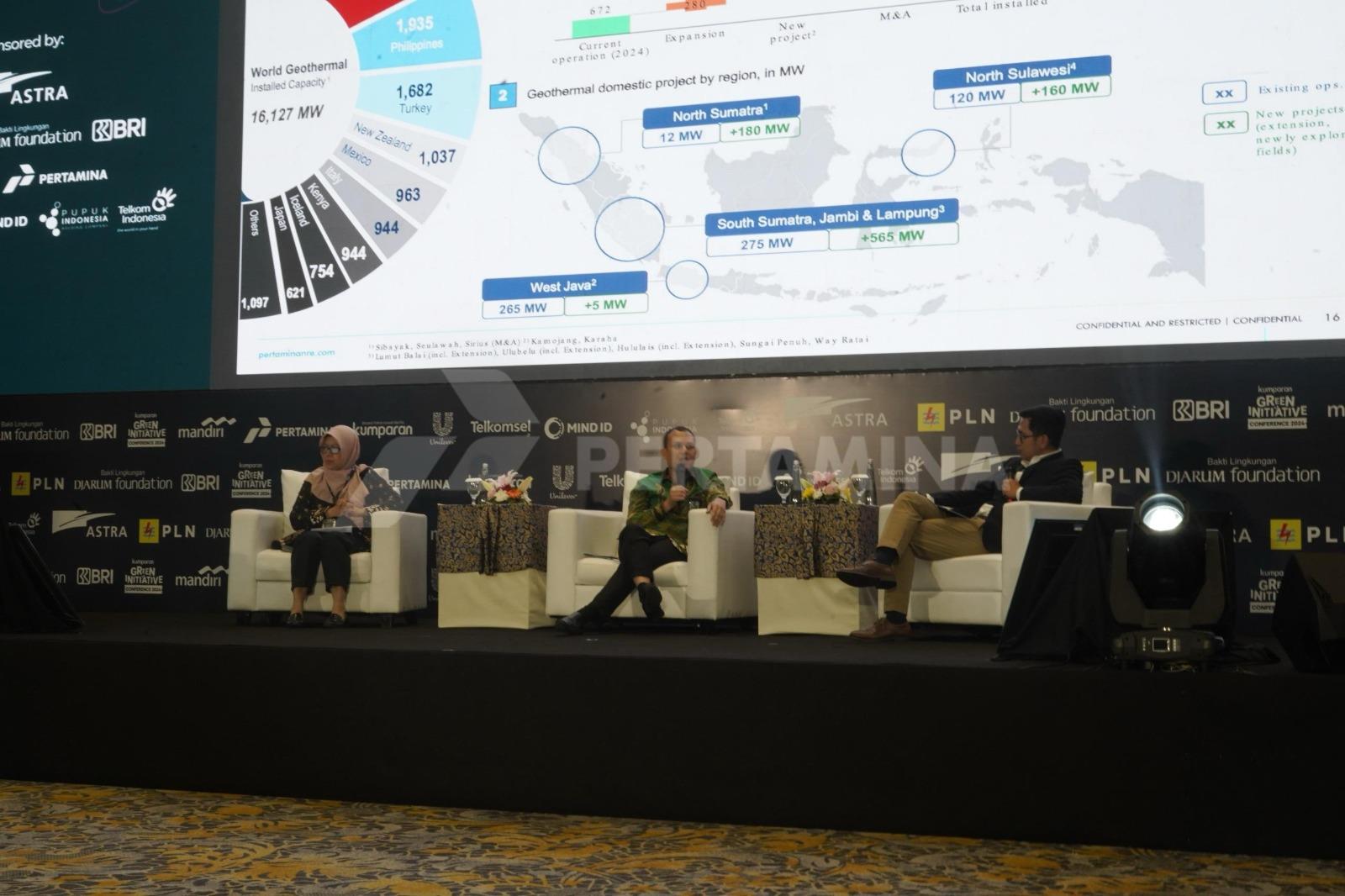
Committed to Driving Energy Transition, Pertamina Group Prepares Bioethanol Ecosystem
Jakarta, October 1, 2024 – Bioethanol development could create an extraordinarily positive impact from upstream to downstream. It was stated by the Risk Management Director of Pertamina New & Renewable Energy (Pertamina NRE), Iin Febrian, during a panel discussion at the Green Initiative Conference organized by Kumparan on Wednesday (25/9).
The transportation sector is the largest contributor to greenhouse gas emissions in Indonesia. Therefore, using environmentally friendly fuels is one of the best solutions to reduce emissions. Indonesia has already succeeded with B35, a biofuel mixture based on palm oil, specifically fatty acid methyl esters (FAME), with a content of 35%. The Indonesian government, through Presidential Regulation Number 40 of 2023 concerning the Acceleration of National Sugar Self-Sufficiency and Bioethanol Supply as Biofuel, is promoting bioethanol development as a mixture for gasoline-type fuels. At the end of last year, PT Pertamina Patra Niaga launched Pertamax Green 95, a Pertamax fuel with a 5% bioethanol mixture.
Not only does this support Indonesia’s enhanced nationally determined contribution (ENDC) targets, but the development of bioethanol as a biofuel also has the potential to create significant value.
“From developing raw materials such as sugarcane, corn, sorghum, and other crops to distributing it to the public, the development of bioethanol can create great value, one of which is expanding employment opportunities,” Iin said.
Pertamina NRE has been entrusted by its parent company, PT Pertamina (Persero), to develop the bioethanol business as the raw material for Pertamax Green. Pertamina NRE has short-term, medium-term, and long-term strategies for bioethanol development starting from 2024 to 2035.
“As part of our short-term strategy, we have signed an agreement with PT Sinergi Gula Nusantara to build a new bioethanol plant using molasses as raw material in Glenmore, Banyuwangi, with a capacity of 30,000 kiloliters per year,” Iin added.
The current national ethanol production capacity is around 180,000 kiloliters per year, while the demand for 5% ethanol (E5) currently reaches 1.9 million kiloliters per year and will double if E10 is implemented. In the short to long term, Pertamina NRE aims to build new bioethanol plants, hoping to reduce the gap between supply and national demand.
The land in Indonesia has the potential to cultivate various energy crops that could serve as bioethanol raw materials. By diversifying raw material types, it is hoped that it will not disturb the national sugar demand for food. Pertamina is currently conducting studies to develop several bioethanol raw materials besides sugarcane, such as sorghum, Nypa (Nypa fruticans), and empty palm fruit bunches.
Pertamina NRE is committed to developing clean energy solutions in support of the nation’s energy transition to achieve the government’s net-zero emissions target by 2060 at the latest.
Vice President of Corporate Communication of Pertamina, Fadjar Djoko Santoso, said Indonesia has significant potential for bioethanol development, making it a promising renewable energy solution.
"Bioethanol is produced from organic materials, offering great potential for a cleaner and more sustainable energy future," Fadjar said.
Pertamina, as a leading company in the energy transition, is committed to supporting the Net Zero Emission 2060 target by continuously promoting programs that directly impact the Sustainable Development Goals (SDGs) achievement. All these efforts align with Environmental, Social & Governance (ESG) implementation across all Pertamina’s business lines and operations.**